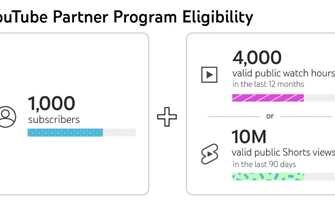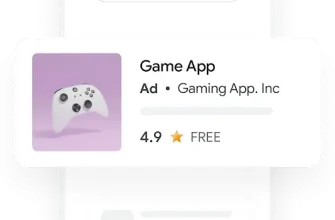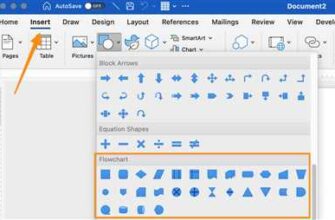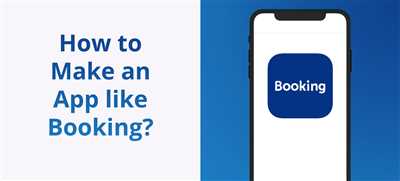
In today’s digital world, almost everything can be done through software. From ordering food to managing finances, technology has become a vitally important part of our daily lives. One such software that lets people have convenient access to services is a booking app.
Whether for hotels, restaurants, or medical appointments, a booking app is a helpful solution that saves time and streamlines the reservation process. Gone are the days of making a phone call to book an appointment or standing in long queues. With a booking app, you can conveniently create, manage, and book appointments or reservations from anywhere in the world.
One of the key benefits of using a booking app is the cost savings it offers businesses. By using a digital system that automates the booking process, businesses can save on manual labor and other associated costs. Furthermore, with a booking app, businesses can also boost their sales and revenue since the app can collect customer information and help with marketing efforts.
For customers, a booking app provides a convenient and efficient way to book appointments or make reservations. They no longer need to spend time searching for contact information, calling to check availability, or waiting for a confirmation. With just a few taps on their mobile devices, they can book a table at their favorite restaurant or reserve a hotel room in their preferred destination.
Booking apps can be used in various industries, including hotels, restaurants, salons, spas, concert venues, and medical clinics. Each type of booking app may have specific features and requirements, but the core function remains the same – to provide a seamless and efficient way for businesses to manage appointments or reservations.
Already, booking apps like Booking.com have become billion-dollar businesses, with millions of people around the world relying on them for their travel needs. By developing a booking app that supports multiple languages and currencies, businesses can attract customers from different parts of the world, further boosting their sales and revenue.
In conclusion, booking apps have already become an integral part of our lives, and their importance will only grow in the future. Whether you are a business owner planning to boost your sales or a tech enthusiast thinking about creating the next big app, understanding how to make a booking app is key. By providing a convenient and user-friendly platform for people to make bookings and reservations, you can help businesses cut costs, improve their customer support, and enhance their overall efficiency.
- Booking Management System Features and Tips for Creating a Booking App
- What Your Business Can Get from Booking App Development
- How to Make a Booking App: Types, Examples
- On-Demand Booking Apps
- In-Advance Booking Apps
- Interested in estimating your booking app development cost
- Key and advanced features to create a booking app
- Key features of modern booking apps
- Advanced features of online reservation apps
- Video:
- How to Create a Hotel Booking App?
Booking Management System Features and Tips for Creating a Booking App
A booking management system is a valuable tool for businesses in various industries, such as hotels, medical offices, and travel agencies. These systems help businesses handle and organize appointments, collect important information, and provide helpful features for both the company and its customers. Whether you’re thinking of creating a booking app for your company or already have one in place, these tips and features will be beneficial for you.
1. Advanced Booking Features: A modern booking app should offer advanced features such as personalized recommendations, ratings and reviews, and the ability to book specific time slots in advance. For example, apps like Booking.com and Airbnb allow users to filter results based on their preferences, interests, and availability.
2. Team Management: If your business is service-oriented, it’s crucial to have a system that allows you to manage your team’s availability and schedule. This feature is particularly useful for medical offices, where patients need to schedule appointments with specific doctors or specialists.
3. Multiple Currencies: When creating a booking app, consider including the option for users to see prices and make payments in different currencies. This feature will attract international customers and make their booking experience more convenient.
4. Push Notifications: Push notifications are an effective way to keep users informed about their upcoming appointments, discounts, or other important information. This feature helps businesses stay in touch with their customers and increases user engagement.
5. Chatbot Integration: Implementing a chatbot feature in your booking app allows users to get instant help and support without having to make a phone call or send emails. This feature not only saves time but also creates a more interactive and user-friendly experience.
6. Cost Planning: Providing cost planning features in your booking app will help users estimate their expenses in advance. For example, a hotel booking app can display the total cost per night, including taxes and additional fees, so that users can budget accordingly.
7. Integration with Other Booking Platforms: Consider integrating your app with popular booking platforms like Booking.com or Expedia to give users access to a wider range of options. This integration will attract more users and increase your app’s visibility in the industry.
8. Key Information Display: Make sure that all key information, such as contact details, location, and cancellation policies, are easily accessible within your app. This will help users find the information they need quickly and prevent any confusion or frustration.
9. Design and User Experience: The design and user experience of your booking app play a significant role in attracting and retaining users. Invest time and effort in creating an intuitive and visually appealing interface that is easy to navigate, and be sure to optimize the app for various devices and screen sizes.
10. Data Collection and Analysis: Collecting and analyzing user data is crucial for understanding their preferences, behavior, and booking patterns. Use this information to improve your app’s features, personalize recommendations, and tailor your marketing efforts for better results.
In conclusion, creating a booking app with these features and tips will help businesses in various industries provide a convenient and personalized booking experience to their customers. By powering your app with advanced solutions and integrating with popular platforms, you’ll not only attract more users but also stay ahead in the competitive market. Remember to constantly update and improve your app based on user feedback and industry trends to ensure its success.
What Your Business Can Get from Booking App Development
In the modern world, most people around the globe are using mobile apps for various purposes. When it comes to booking services or making reservations, having a booking app can be a game-changer for your business. With the advanced technology available, creating a booking app for your business can deliver numerous benefits and boost your sales.
One of the best examples of a successful booking app is Booking.com. This app has become a powerhouse in the travel industry, powering billions of bookings around the world. By creating your booking app, you can tap into this market and target people who are already using these systems.
So, what benefits can your business get from booking app development? Let’s explore:
1. Convenience:
A booking app offers convenience to your customers. They can instantly book appointments or reserve a table in advance, without the need to make a phone call or physically visit your business. This will attract more customers who prefer the ease and speed of online reservations.
2. Increased Sales:
Having a booking app can significantly increase your sales. By enabling customers to quickly book services or make reservations, you can attract more customers and increase the number of bookings. This will ultimately result in higher revenue for your business.
3. Time and Cost Cuts:
A booking app can help you save both time and money. By automating the booking process, you can eliminate the need for manual reservation handling, reducing labor costs. Additionally, customers can view available time slots and make bookings at their convenience, without requiring staff assistance.
4. Enhanced User Experience:
A well-designed booking app can provide a seamless user experience. Customers can easily navigate through the app, view available slots or services, and make bookings with just a few taps. This will help in delivering a positive impression of your business and encourage repeat bookings.
5. Support for Industry-Specific Models:
Booking apps are not limited to a specific industry. Whether you run a restaurant, a medical practice, or any other kind of business that requires bookings, you can build a customized solution to fit your industry-specific needs. These apps can collect valuable information about customer behavior, preferences, and ratings, helping you improve your services.
With all these benefits in mind, it’s evident that investing in booking app development can be a game-changer for your business. Whether you are a small local business or a large enterprise, a booking app can help you deliver an advanced and helpful solution for your customers.
How to Make a Booking App: Types, Examples
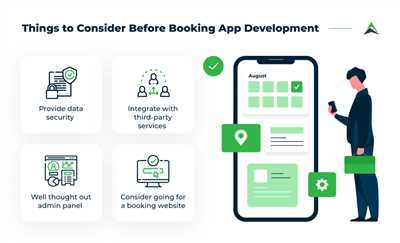
Booking apps have become vitally important in industries ranging from travel to medical services. With the increasing demand for convenient and efficient ways to make reservations and appointments, businesses of all types can benefit from building their own booking app. In this article, we will explore the key features and examples of booking apps.
One of the most common types of booking apps is for hotels. These apps allow users to search for available rooms, view prices in different currencies, and make reservations. With a user-friendly design and real-time availability updates, hotel booking apps provide convenience to travelers.
Another industry that heavily relies on booking apps is the restaurant industry. These apps let customers book tables at their favorite restaurants, discover new dining options, and even order food in advance. Along with reservation management features, restaurant booking apps often include ratings and reviews to help users make informed choices.
Medical appointment booking apps are also in high demand. These apps enable patients to schedule appointments with healthcare professionals, saving time and improving access to medical services. From general practitioners to specialized doctors, users can easily find and book appointments with the right healthcare providers.
In addition to these examples, booking apps can be used in various other sectors such as beauty salons, fitness studios, and event management. The key is to identify the specific needs of your target market and build a booking app that caters to those requirements.
When thinking about how to make a booking app, certain features should be considered. A search feature is essential for users to find the service or appointment they are interested in. Geolocation can be used to show available options near the user’s location. Support for multiple languages and currencies is also important, especially for apps targeting international travelers.
Another key feature to include in a booking app is a chatbot or live chat support. This can help users with their inquiries and provide assistance throughout the booking process. Additionally, integrating a rating and review system allows customers to share their feedback and helps businesses improve their services.
Modern booking apps often include on-demand features, allowing users to book services for immediate use. This has become especially relevant in industries such as transportation, where users can request a ride on-demand using a booking app.
Researching the market and estimating the potential sales of a booking app is crucial before starting the development process. Understanding the behavior and preferences of your target audience will help you build an app with the most appropriate features and design.
Building a booking app can open up new opportunities and improve the reservation management system of your business. Whether it’s a hotel, restaurant, medical service, or any other industry requiring appointment bookings, a well-designed and user-friendly app can enhance the customer experience while streamlining your company’s operations.
So, if you’re wondering how to make a booking app, consider the examples and features discussed in this article. With the right software and a focus on the needs of your target market, you can create a successful booking app that meets the demands of the modern market.
On-Demand Booking Apps
In today’s fast-paced world, on-demand booking apps have become an excellent solution for businesses and consumers alike. Whether you’re looking to book a hotel, reserve a table at a restaurant, or schedule an appointment with a doctor, there’s an app for all your booking needs.
One of the most well-known on-demand booking apps is Airbnb. It offers people the opportunity to book unique accommodations around the world. The company has created a platform where individuals can open up their homes to travelers, providing them with a free and convenient alternative to traditional hotels.
On-demand booking apps come with a range of features that make it easy for users to search, book, and manage their appointments. Geolocation services help users find relevant options based on their location, while reviews and ratings provide insights into the quality of services offered. The apps also have push notifications and chatbot functionalities to keep users informed and help them make informed decisions.
For businesses, on-demand booking apps can significantly boost their marketing and customer reach. By tapping into the growing mobile tech industry, companies can target a larger audience and provide them with a seamless booking experience. The apps also allow businesses to gather valuable feedback from their clients, helping them improve their services and stay ahead of the competition.
When it comes to making on-demand booking apps, there are different types of systems and models that developers can employ. For example, a restaurant booking app may require a table reservation system, whereas a hotel booking app would need a room inventory management solution. Understanding the specific needs of the industry and the target audience is key to creating a successful app.
Developers will need to do thorough research and understand the behavior and preferences of their potential users. By studying the industry trends and analyzing the needs of their target audience, developers can create a solution that addresses their customers’ pain points.
Some businesses opt to develop their on-demand booking apps in-house, while others partner with tech companies specializing in software development. Both options have their benefits, and it ultimately depends on the company’s resources and expertise. Additionally, open-source booking platforms are available, which provide a more cost-effective solution for businesses on a budget.
Whether you’re a business owner or a consumer, on-demand booking apps are changing the way we book and plan our appointments. The convenience and ease of use they offer have revolutionized the travel, hospitality, and healthcare industries, among others. With the power of technology and innovation, on-demand booking apps are shaping the future of how we book and reserve services.
| Airbnb | On-demand booking platform for unique accommodations |
| Geolocation | Feature that helps users find relevant options based on their location |
| Reviews and ratings | Feedback from other users to inform decision-making |
| Push notifications | Keeps users informed about booking updates |
| Chatbot | Automated assistant to assist users with their booking needs |
| Mobile tech industry | Growing industry that focuses on mobile technology |
| Target audience | Specific group of people for whom the app is designed |
| Valuable feedback | Insights from customers to improve services |
| Table reservation system | Feature required for restaurant booking apps |
| Room inventory management | Feature required for hotel booking apps |
| Open-source booking platforms | Free or low-cost solutions for businesses |
| Travel, hospitality, healthcare | Industries benefiting from on-demand booking apps |
In-Advance Booking Apps
In-advance booking apps are data-driven solutions that help people plan and book appointments, reservations, and services in advance. These apps have become increasingly popular in today’s modern world, as people are more interested in planning and scheduling their activities ahead of time.
One of the most well-known in-advance booking apps is Booking.com, which offers a wide range of services that people can book in advance, such as hotels, restaurants, and experiences. With a free account on Booking.com, users can search for relevant services, read reviews and ratings, and reserve their desired options all in one place.
Another popular in-advance booking app is Airbnb, which allows people to book accommodations in advance. Airbnb has revolutionized the market by offering unique and specific options aside from traditional hotels. Users can search for accommodations using various filters, such as location, amenities, and price, and book their ideal stay with just a few clicks.
These in-advance booking apps not only benefit the consumer but also the service providers. By making their services available online, hotels, restaurants, and other businesses can reach a wider audience and attract more customers. The apps also offer management features, such as geolocation and availability management, to help businesses deliver excellent service.
By using advanced technology and data-driven models, in-advance booking apps can estimate the cost and time required for specific services, helping users make informed decisions. These apps also take into account user behavior and preferences, providing personalized recommendations and suggestions.
Creating an in-advance booking app should start with a team that understands the market and consumer behavior. The app should have an excellent user interface design to make it easy for people to browse and book services. Geolocation features can help users find nearby options and plan their activities accordingly.
In conclusion, in-advance booking apps have become an essential tool in the modern world. By powering people with information and cutting through the complexity of scheduling, these apps help users get the best out of their time and deliver excellent service. Whether for hotels, restaurants, or other services, in-advance booking apps are a must-have for anyone interested in planning and booking in advance.
Interested in estimating your booking app development cost
If you have a restaurant, a hotel or any other service-based company, creating a booking app can greatly benefit your business. With the modern tech-savvy market, customers are becoming more inclined to use online systems to book and manage their appointments. It not only cuts down on their wait time but also provides convenience and personalized service.
For example, let’s take the restaurant industry. In this fast-paced world, people prefer not to waste time waiting for a table at a restaurant. By using a booking app, customers can search for relevant restaurants based on their location, type, and required services. They can book a reservation in advance and receive a push notification when their table is ready. This not only improves customer satisfaction but also helps the restaurant efficiently manage their table occupancy and staff scheduling.
Booking apps have become a multi-billion dollar industry, with companies like Booking.com leading the market. Their success is an indication of the popularity and demand for such services. And this demand is not limited to the hospitality industry. People are constantly looking for convenient and efficient ways to book appointments, services, and accommodations.
By developing a booking app for your business, you can tap into this market and provide a convenient way for your customers to book and manage their appointments. Whether it is a hair salon, a fitness center, or a healthcare provider, having a booking app can greatly improve your service delivery and customer satisfaction.
Estimating the cost of developing a booking app can vary based on the complexity of the system and the features required. It is always best to consult with a professional software development team to get an accurate estimate. They will be able to provide you with feedback on the appropriate technologies and solutions to meet your business needs.
One of the popular features in booking apps is the use of chatbots to assist customers in their search for relevant services and making reservations. Chatbots can provide personalized recommendations based on the user’s behavior and preferences. They can also help customers with any queries they may have, making the process more user-friendly and efficient.
In conclusion, if you’re interested in estimating the cost of developing a booking app, consider the benefits it can bring to your business and the market demand for such services. It is a viable investment that can help you streamline your operations, attract more customers, and enhance their overall experience.
Key and advanced features to create a booking app
Creating a booking app can be a complex task, but with the right features and software, you can build an excellent app that will meet the needs of your target market. In this article, we’ll explore the key and advanced features that you should consider when making a booking app.
One of the most important features to include in your booking app is the ability to support multiple currencies. This is vitally important for users who may be traveling internationally and need to make reservations in a different currency than their own. By allowing users to select their preferred currency, you’ll be able to deliver a personalized and user-friendly experience.
Another important feature is a data-driven system that can personalize the booking experience for your clients. By collecting and analyzing data on their preferences and behavior, you can provide tailored recommendations and suggestions for their reservations. This can help increase customer satisfaction and loyalty.
Online reservations are another key feature that your booking app should have. By allowing people to reserve appointments or book services online, you’ll make it easier for them to find and secure the best available options. This can save time and provide a more efficient experience for your customers.
Integration with other platforms and systems is also crucial. For example, integrating with popular travel and hotel booking platforms like Booking.com can provide your users with a wide range of options and information. Additionally, geolocation features can help users find nearby hotels, restaurants, or attractions when they’re in a new city or location.
An advanced feature that can greatly enhance the user experience is a chatbot. By implementing a chatbot into your booking app, you can provide instant support and assistance to users, answering their questions and helping them navigate through the app. This can improve customer satisfaction and reduce the need for manual customer support.
When it comes to the business and marketing side of your booking app, it’s important to have advanced analytics and reporting capabilities. This will allow you to track and analyze the performance of your app, identify trends and areas for improvement, and make data-driven decisions. Additionally, integrating with social media platforms can help you reach a wider audience and promote your app to potential users.
Lastly, it’s important to conduct thorough research and identify the specific needs and requirements of your target market. For example, a medical booking app would have different features and requirements compared to a travel booking app. By understanding your target market and their needs, you can build a more successful and impactful app.
In conclusion, creating a booking app with key and advanced features can help you build a successful business and deliver an excellent experience to your customers. By incorporating functionalities like multiple currencies, online reservations, personalized data-driven suggestions, integrations with other platforms, and advanced analytics, you’ll be able to meet the specific needs of your target market and stand out from the competition.
Key features of modern booking apps
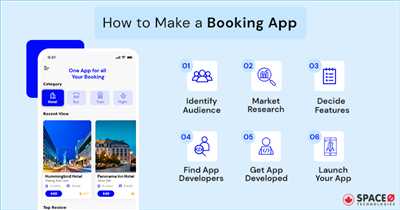
In today’s fast-paced world, where time is a valuable resource, modern booking apps have become vitally important for businesses and consumers alike. These apps provide convenient solutions for booking appointments, reservations, and services in various industries, ranging from hotels and restaurants to doctors and salons.
Here are some key features that make modern booking apps stand out:
- Easy booking process: Modern booking apps are designed to help users easily book services and appointments. They offer intuitive interfaces and streamlined workflows, allowing users to quickly find and book what they need.
- Comprehensive search: These apps have advanced search capabilities that let users find the best available options based on their preferences. For example, you can search for hotels with specific amenities or doctors with certain specialties.
- Online reservations: Modern booking apps not only let you book appointments or make reservations but also allow you to do it online. This eliminates the need for phone calls and ensures you can book at any time that’s convenient for you.
- Rating and feedback: Many booking apps incorporate ratings and feedback systems, allowing users to see and provide reviews of the services they have booked. This helps users make informed decisions and encourages service providers to maintain excellent quality.
- Integration with other systems: Modern booking apps often integrate with other software and systems. For example, hotels can integrate with travel management systems, and medical booking apps can integrate with electronic health records. This improves efficiency and enhances the overall user experience.
- Chatbot assistance: Some advanced booking apps employ chatbots to assist users in the booking process. These AI-driven chatbots can answer questions, provide suggestions, and guide users through the entire booking journey.
- Account management: Modern booking apps allow users to create accounts and save their preferences, making future bookings quicker and more personalized. Users can also view their booking histories, manage cancellations, and modify their reservations easily.
- Collecting consumer data: Booking apps collect valuable consumer data, such as preferences, behaviors, and contact information, which businesses can leverage for marketing and research purposes. This data helps businesses to target their offerings better and create more relevant solutions.
In conclusion, modern booking apps have revolutionized the way we make bookings and reservations. With their user-friendly interfaces, comprehensive search capabilities, and integration with other systems, these apps have become incredibly convenient and powerful tools for businesses and individuals alike. Whether you’re booking a hotel room, a table at a restaurant, or an appointment with a doctor, modern booking apps are there to help you save time and make the best choices.
Advanced features of online reservation apps
Online reservation apps have become a vital part of the tech industry, with many businesses and consumers relying on them to book appointments and services. These apps offer a convenient way for people to reserve appointments, whether it’s for medical consultations, dining at a restaurant, or booking a hotel room. The advanced features of these apps go beyond basic booking functionalities, delivering a more personalized and efficient experience for users.
One of the key features of online reservation apps is their ability to collect and analyze user data. By collecting relevant information such as customer preferences, behavior, and ratings, these apps can provide personalized recommendations and suggestions for future bookings. This personalized approach helps businesses target their marketing efforts more effectively and boost overall sales.
Another advanced feature is the on-demand booking capability. Apps like Airbnb and Booking.com have revolutionized the travel industry by allowing users to instantly reserve accommodations, making last-minute travel plans more accessible. The on-demand feature is not only limited to the hotel industry; it has also been implemented in other sectors such as medical services, where patients can book appointments with doctors in advance or on the same day.
Customer feedback and ratings are also vitally important for online reservation apps. These systems enable users to leave reviews and ratings about their experiences. This feedback is helpful for other users to make informed decisions when booking services. Additionally, it helps businesses improve their services based on customer feedback, resulting in higher customer satisfaction and loyalty.
These apps also offer advanced marketing features to help businesses promote their services. They provide tools that allow businesses to create personalized offers, send targeted promotions to specific customer segments, and collect data on consumer behavior. By leveraging these marketing features, businesses can better understand their target market, tailor their offerings, and ultimately increase their sales.
Aside from their advanced marketing capabilities, online reservation apps have also powered the development of specific niche industries. For example, apps like OpenTable have revolutionized the restaurant industry by enabling diners to reserve tables in advance, eliminating the need to wait in long queues. Similarly, apps for medical appointments have made it easier for patients to book appointments with doctors specializing in different fields.
In conclusion, the advanced features of online reservation apps have made booking services and appointments more convenient for consumers while also benefiting businesses. These apps not only make the reservation process easier, but they also provide personalized recommendations, collect and analyze user data, and allow for on-demand bookings. With the continued growth of the tech industry, it can be expected that these apps will continue to evolve and innovate, meeting the ever-changing needs of businesses and consumers alike.

